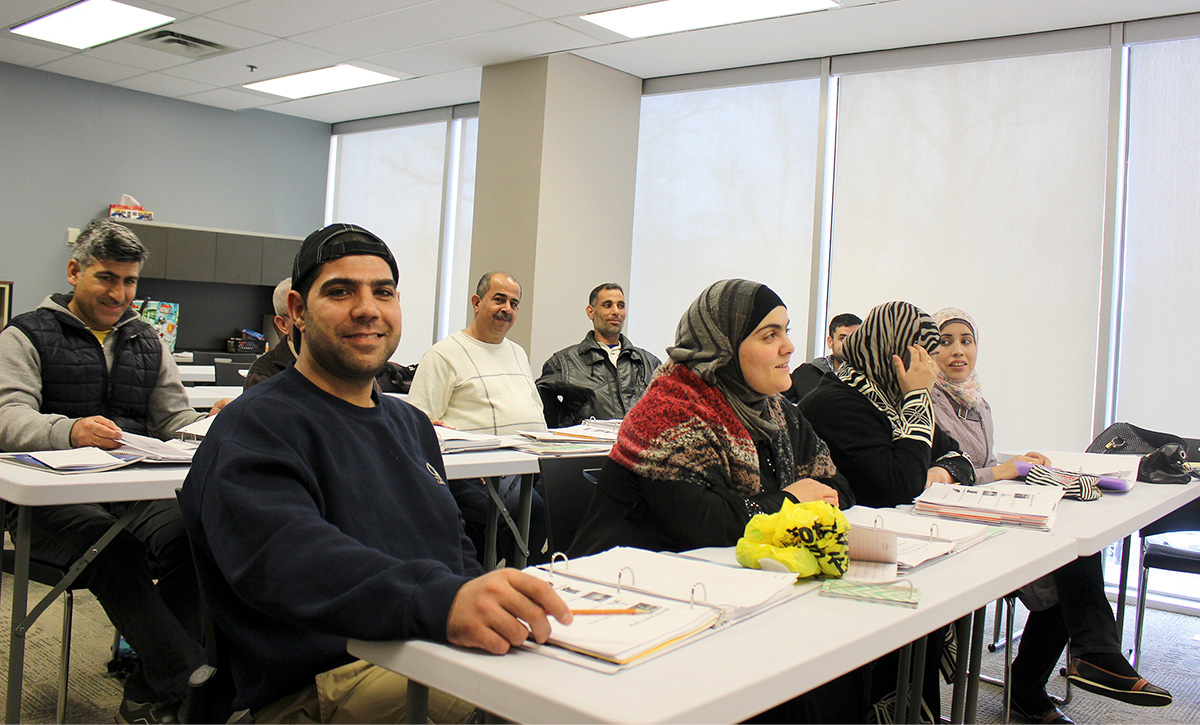Share this post
This article is part of a series of posts highlighting education systems around the world. With this article, we hope to raise awareness of both the needs of the students and the challenges of running an English language program for newcomers to Nova Scotia, Canada. We also hope to share heartwarming and inspiring success stories with our community of teachers around the world.
Throughout the 1980s, 1990s, and early 2000s, Metropolitan Immigrant Settlement Association and the Halifax Immigrant Learning Centre assisted immigrants with settlement, helping newcomers to Nova Scotia, Canada find employment and learn English.
In late 2009, these two organizations merged to form the Immigrant Services Association of Nova Scotia (ISANS).
Today, ISANS's mission is to help immigrants build a future by providing a number of programs and services. These include:
- Settlement support services
- English language programs
- Employment support services
- Business development services
- Community programs
The organization envisions a community where all can belong and grow.
“We empower and build upon newcomers’ skills through programs and services designed to meet their needs and support their journey towards possibility,” a spokesperson for the organization said.
ISANS offers a variety of language programs that focus on learners’ needs and goals. Some of the courses ISANS provides include:
- Beginner-level literacy classes
- English classes for everyday living
- Classes for communicating in the workplace
- Courses for internationally educated health-care and engineering professionals
The language programs are predominantly funded by Immigration, Refugees and Citizenship Canada (IRCC) and the Nova Scotia Department of Labour, Skills and Immigration.
“We work with learners to identify their unique needs and offer support tailored to their settlement language goals,” said the organization.

A language class pre-pandemic is pictured here.
Prior to the pandemic, ISANS held in-person classes. But in light of COVID-19, they've had to move their language programs online.
This challenging process involved conducting training sessions for staff and clients on how to use online platforms like Avenue, Zoom, and WhatsApp. For some learners, ISANS mails out homework packages. These clients had to be taught how to use the cameras on their phones in order to send photos of their work to their instructors.
"My classes run for 90 minutes. I usually have an opening activity that we do for 10 minutes or so every day, which reinforces a skill but also serves to occupy us while people are joining. In the winter, I often share my screen with the Environment Canada seven-day weather forecast and ask specific questions about it. Whatever activity I spend time on as an opener, I will eventually assess so they can demonstrate that learning."
—An ISANS instructor
In addition to ensuring digital access and digital literacy for both instructors and clients, growing waitlists have been another challenge the organization has had to navigate throughout the pandemic.
“In the early part of the pandemic, we had seen our waitlist numbers grow while we learned to adapt programs especially impacted and to focus on program continuity," the organization said. "Within the year, we were able to successfully drop our waitlist numbers by nearly 50%. Today, our client numbers closely resemble pre-COVID days and are growing."

An instructor teaching over WhatsApp is pictured here.
Despite the challenges presented by the pandemic, ISANS continues to have an incredible impact.
On average, 150 participants are enrolled every month with 1,200–1,300 clients in programming at any given time. Last year, over 2,000 learners were enrolled in over 110 language classes.
“I didn’t realize how much I learned from [ISANS] until I had to simulate an interaction with a patient in front of other doctors,'' said an anonymous participant who took ISANS's online course for physicians and pharmacists. "I can confidently say that I aced it, and all the credits go to ISANS. You are helping us to be the best version of ourselves."
ISANS appreciates volunteers immensely and has a number of ways for people to get involved. Some of which include:
- Holding practice interviews with clients to help them improve their interviewing skills
- Having a conversation with clients so they can practice their conversational skills
- Assisting instructors with their English language classes
To learn more about the organization and/or to volunteer, visit the ISANS website.
Related
Comments
There are no comments on this post. Start the conversation!

